Economy
Growth is forecast to be 1.2% this year taking into account today's budget measures. It is forecast to be 2.3% next year, 2.8% in 2012, 2.9% in 2013 and 2.7% in both 2014 and 2015.
Debt will be falling and structural current deficit should be balanced by 2014.
Consumer price inflation is expected to reach 2.7% by the end of the year returning to target in the medium term
Unemployment rate forecast to peak at 8.1% this year and then fall for each of the next four years to reach 6.1% in 2015.
77% of total consolidation to be achieved through spending reductions and 23% through tax increases.
Public sector net borrowing will be £149bn this year, £116bn next year, £89bn in 2102-13, £60bn in 2013-14, £37bn in 2014-15, falling to £20bn in 2015-16.
Public sector net debt as share of GDP will be 62% this year and will peak at 70% in 2013-14. It will then begin to fall reaching 67% in 2015-16.
Additional current expenditure reductions of £30bn a year by 2014-15.
No further reductions in capital spending totals.
Public sector
Two year public sector pay freeze on staff earning more than £21,000.
People earning less than £21,000 will will each receive a flat pay rise worth £250 in each of the two years.
Operational allowance for troops in Afghanistan doubled to £4,800.
Will Hutton to draw up plans for fairer pay across the public sector, without increasing the overall pay bill, so that those at the top of organisations are paid no more than 20 times the salaries of those at the bottom.
An independent commission chaired by John Hutton will review public sector pensions. There will also be consultation on scrapping default retirement age.
Rise in the state pension age to 66 will be accelerated.
Government will seek private capital injection into the Royal Mail Group.
Welfare
Benefits, tax credits and public service pensions will increase in line with consumer prices rather than the retail price index.
Child benefit to be frozen for the next three years.
Caps on housing benefit to be introduced - from £280 a week for a one-bedroom property to £400 a week for a four-bedroom or larger. Together with other measures this will reduce costs of housing benefit by £1.8bn a year by the end of the parliament.
Sure start maternity grant will go to the first child only.
Eligibility for child tax credits to be reduced for families with a household income of more than £40,000 from April next year
The baby element of child tax credit will be abolished from April next year
Child element of the child tax credit to increase by £150 above indexation next year.
Taxes
Corporation tax, currently 28%, to fall by 1p in the pound a year for four consecutive years until it reaches 24%.
Small companies tax to fall to 20%.
New firms outside south-east/east to be let off employer national insurance contributions, up to £5,000, for each of first 10 employees recruited.
VAT to increase to 20% on 4 January next year. Will generate over £13bn a year of extra revenues.
Government to work with local authorities to freeze council tax for one year from April next year.
Capital gains tax, currently 18%, to increase for higher earners to 28% from midnight. Low and middle-income savers will continue to pay 18%
Personal income tax allowance to be raised by £1,000 from April to £7,475. Will take 880,000 people out of tax altogether.
Higher rate income tax threshold frozen until 2013.
The standard rate of insurance premium tax to rise from 5% to 6% and the higher rate to increase from 17.5% to 20%.
50p-a-month levy on phone lines to pay for the rollout of superfast broadband scrapped.
Planned tax-relief for video games industry to be scrapped.
Bankings and savings
Bank levy to be introduced in January next year, to apply to the balance sheets of UK banks and building societies, and to the UK operations of banks from abroad. Expected to raise over £2bn of annual revenues.
Drinks, cigarettes and fuel
No increase in duties.
Reversal of government decision to increase duties on cider by 10% above inflation confirmed. Will take effect at end of month.
Pensions
From April next year the basic state pension will be re-linked with earnings.
Basic state pension will increase every year by highest of earnings, inflation or 2.5%.
Businesses
Regional Growth Fund to provide finance for regional capital projects over the next two years.
The 10% Capital gains tax rate for entrepreneurs, which currently applies to the first £2m of qualifying gains made over a lifetime, will be extended to the first £5m of lifetime gains.
Capital allowances for the majority of plant and machinery assets to fall from 20% to 18%, while the allowance for longer-lived assets will fall from 10% to 8% from April 2012.


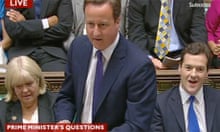

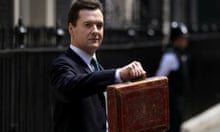
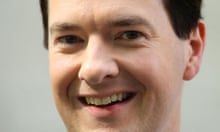
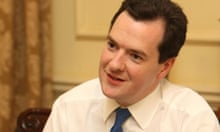
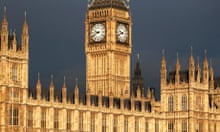
Comments (…)
Sign in or create your Guardian account to join the discussion